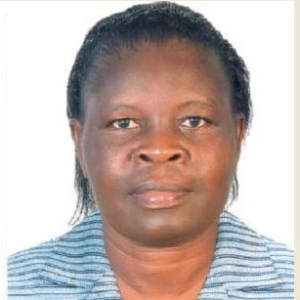Title : Essential oil of Lippia multiflora :a potential natural fungicide against Fusarium wilt of onion
Abstract:
The consequences related to fungal diseases are very important. Annually, economic losses due to these diseases in world agriculture were estimated at more than 200 billion euros. The use of synthetic fungicides remains the main means of combating pathogens. However, the consequences of their use are multiple: development of resistance, toxicity for the environment, animals and producers, contamination of agricultural commodities, etc. With regard to these problems, the development of effective but simple local means of control, respectful of the environment and accessible to the majority of the populations, would make it possible to ensure a healthy protection of the cultures, in particular the vegetable cultures and to preserve the environment. The objective of this study is to demonstrate to vegetable growers and agricultural extension workers that by a simple plant extract, it is possible to fight effectively against Fusarium wilt of onion and to significantly increase production. To this end, it was a question of evaluating the antifungal efficacy of aqueous extracts of B. aegyptiaca and Agave sisalana and essential oils of Lippia multiflora, Ocimum americanum, Cymbopogon schoenanthus and Eucalyptus camaldulensis against two fungal species: Fusarium oxysporum and F. proliferatum, responsible for onion fusarium wilt in Burkina Faso. The inhibitory effect of the plant extracts was evaluated in vitro on the mycelial growth of fungi, followed by the evaluation of the effectiveness of the best products in the treatment of onion seeds or plants against Fusarium wilt, carried out under greenhouse conditions. Essential oils of L. multiflora and O. americanum caused total inhibition of mycelial development of both fungi. In seed treatment, these two oils significantly reduced pre-emergence damping off and post-transplanting damping-off compared to the untreated control. Plant treatments also significantly reduced post-transplanting damping-off caused by F. oxysporum. These treatments also resulted in better leaf formation and a significant increase in bulb production, compared to the untreated control. However, it should be noted that the production of bulbs was significantly greater with L. multiflora than with O. americanum, regardless of the inoculum used to contaminate the seeds or plants, attesting to the greater efficacy essential oil of L. multiflora as a seed or plant treatment against fusarium wilt than that of O. americanum.
Audience Take Away:
- The target audience for this research is notably vegetable growers and agricultural extension workers. This public will be made aware of the extent of Fusarium wilt on onions but also of the possibility of using a simple and practical mean (a local plant extract) to protect onions against this disease.
- Vegetable growers and extension agents will learn how to use natural, simple, low-toxic, low-polluting products to preserve their onion crops against this important disease of Fusarium wilt and improve their production.
- This research could well be used by other researchers on other crops, other diseases or even crop pests.
- Will it improve the accuracy of a design, or provide new information to assist in a design problem.



